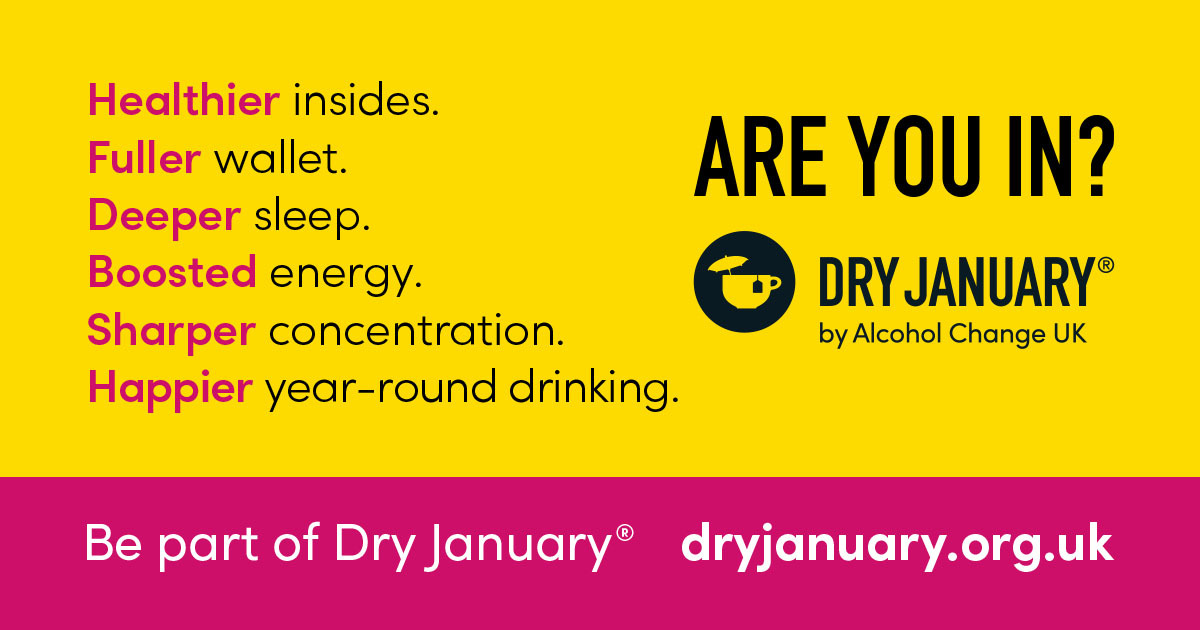For many people, January might be feeling endless. With everyone feeling the financial effects of the festive period and the bright lights and social occasions long gone, the start of the year can feel a bit bleak.
However, for those who decided to try Dry January, finishing the third week of the challenge is likely to be the time the benefits are really felt. By the time a regular, moderate drinker has gone three weeks without alcohol, there are a number of boosts for body, mind and wallet.
Here are some of the key improvements:
- Deep sleep – with alcohol fully out of the system and levels of dopamine, glycogen and minerals (all affected by alcohol) restored, sleep should be deep and restful. Although increased REM sleep could mean some outlandish dreams!
- Let’s get physical – exercise might be more beneficial! Alcohol is a muscle relaxant, so drinking regularly can reduce muscle development. Good news if you’re a fitness buff or have been meaning to give exercise a go
- Dropping the lbs – weight loss is common for those who go the distance with trying dry. This is due to a combination of skipping the 200+ calories per pint of beer or large glass of wine, plus the extra calories people tend to consume when hungover
- Hydration station – drinking more water and feeling thirstier is common – this happens as you tune into your body and become more aware of how much fluid you need. You may also have swapped an evening tiple for something more hydrating
- In the money – even moderate drinking is expensive. Getting through three large glasses of wine and two bottle of beer per week equates to 12 units (below the UK advised maximum of 14 units) and racks up an average weekly cost of £14.25 – as well as 848 calories. By week three, you’ve saved £42.75
- High energy – without the impact of alcohol, you’ll likely have more energy, find getting up easier and be thinking more clearly
- Long term benefits – the month may almost be over but research by the University of Sussex shows 70 per cent of participants were till drinking more healthily six months on. Health benefits of this include: lower blood pressure, reduced diabetes risk, lower cholesterol and lower levels of cancer-causing proteins in the blood
- Reducing the risk – alcohol is a causal factor in more than 60 conditions, including mouth, throat, stomach, breast and liver cancers; high blood pressure; cirrhosis of the liver and depression.
If you missed out on the start of Dry January, it’s not too late to try going dry. Visit alcoholchange.org.uk (the charity behind Dry January) and you can get the free app to track your drinking, dry days, money saved and more all year round.
To carry on cutting out (or cutting down on!) alcohol without missing a night out, check out Hull’s Low Ale Trails. Three trails in the city centre, theatre quarter and Avenues area map out local pubs and bars offering a range of no and ultra-low alcohol lagers, IPAs, wines and spirits. There are a total of 35 venues across the three trails – so wherever you’re going, you can enjoy a night with no taxi scramble and no hangover!
If you are concerned about the amount you drink, get help in Hull from ReNew. Email: earlyhelp.hull@cgl.org.uk or call: (014820 620 013 or search ‘Renew Hull’.
